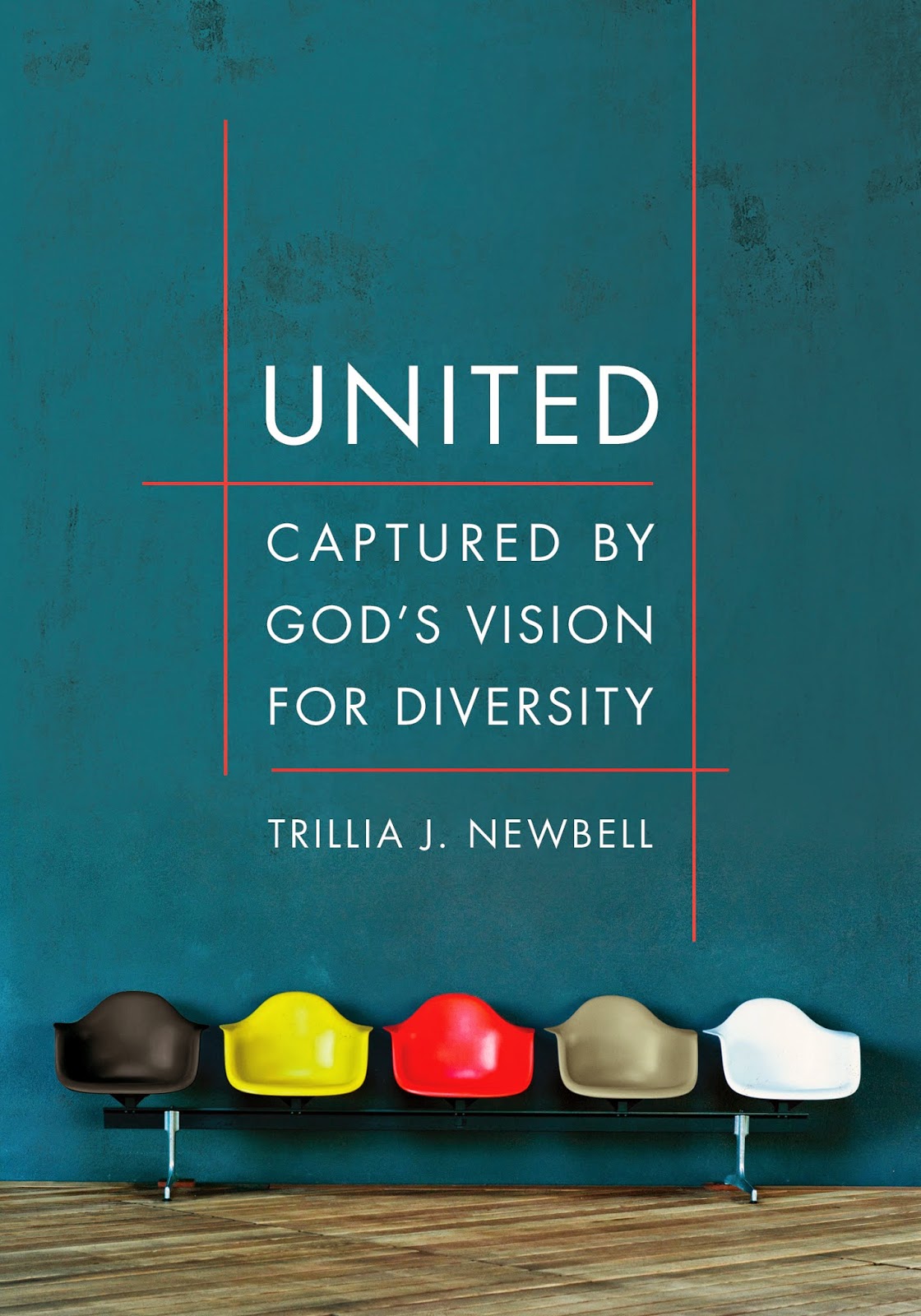Trillia Newbell and the Church’s Answer to Racism
With memories of racially-tinged police brutalities still
lingering in our minds from last year, and the release of Selma last
weekend, the topic of racism is alive and well, which is both good and bad.
It’s good that we’re talking about it, rather than ignoring it. It’s bad
because…well, because it’s still an issue. We’ve come a long way as a country,
but we still have a long way to go.
Lest I give the impression otherwise, Trillia talks more about the solution than she does the problem. Hers is a decidedly hopeful book. Though she has seen and experienced racism in her life, her outlook is based on viewing the future through a gospel-saturated lens:
I don’t often stop and think when an author tells me to do so (I just want to keep reading), but when I read those words, I did stop, and I did think about it. And it was indeed a beautiful picture.
I’ve read that Trillia needlessly narrows her audience to those in the Reformed world. I don’t see this as a weakness for two reasons.
First, since her book is largely autobiographical, she is simply sharing her
experience in the Reformed community. Her testimony doesn’t need to be something
it isn’t. Second, my own experience in the Reformed community leads me to
believe that people like myself need to hear more perspectives on racial
reconciliation. A book catered specifically to us is much needed.
In the end, Christians like me need people like Trillia to help us move past our comfort zones and embrace the “unity through diversity” found through gospel-empowered relationships. I’m thankful for voices like hers. May more of us have ears to hear.
In an article for The
Atlantic, Robert P. Jones proposed that “the chief obstacle to having an intelligent, or even intelligible,
conversation across the racial divide is that on average white Americans live
in communities that face far fewer problems and talk mostly to other white
people.” Voluntary segregation is a problem, for many more of us than those who
care to admit it.
What is the solution? My friend Trillia Newbell talks about it in her book United: Captured by God’s Vision for Diversity. Through her own personal
experiences, she shares how the gospel empowers interracial harmony.
Considering that the book is titled United,
it should come as no surprise that one thing which stuck out to me was just how
united all Christians are, regardless of race. The similarities we share in
Christ far outweigh any and all differences. Finding our identity in Christ has
radical implications for how we view those who are unlike us. It’s a simple
truth, but it’s easy to wave off with bored disinterest.
When we don’t fully understand and embrace those implications, we tend
to stay within our cliques—even in church:
Our self-sufficiency and pride can often lead to apathy in our relational pursuits:
Self-sufficiency says we don’t need
anyone, but humility shouts for help from those God has placed in our lives. .
. . [W]e might think that we just don’t need others who are unlike us.
Sometimes logistical barriers keep us from being able to expose ourselves to
one another, but that is quite different from resisting diversity because, in
our pride, we think we are okay relating only to those we already know who are
like us.
Our self-sufficiency and pride can often lead to apathy in our relational pursuits:
[W]e must be careful not to use our
differences in language and culture as a crutch or an excuse. We also must not
allow our differences to be excuses for apathy. It’s simply easier to coast
through life not worrying about anyone outside of those immediately associated
with us. It takes effort to know those not like us, to study history and ask
hard questions and be willing to change.
Lest I give the impression otherwise, Trillia talks more about the solution than she does the problem. Hers is a decidedly hopeful book. Though she has seen and experienced racism in her life, her outlook is based on viewing the future through a gospel-saturated lens:
My dream and hope is that my
black-and-white children (the sweet gift of biracial blood) will be holding
hands with black, Latino, Chinese, European, and African children in church one
day, worshiping together. Stop and think about. Isn’t it a beautiful picture?
I don’t often stop and think when an author tells me to do so (I just want to keep reading), but when I read those words, I did stop, and I did think about it. And it was indeed a beautiful picture.
It will be beautiful to experience that myself in Heaven. In
fact, as Trillia points out, if that’s what we’re headed for on the other side
of eternity, why not have a little taste of such a culturally and spiritually
rich experience in the present? Why wait for Heaven to start enjoying Heavenly
gifts now?
If I had anything negative to say, it would actually be about the editor and not Trillia herself. I caught a small handful of redundancies here and there (just little turns of phrase) that should have been caught and reworded. Nothing major, but I found it to be a distraction. There’s also one instance where a couple sentences on one page are repeated verbatim on another. I hope the editor of Trillia’s next book, whoever he or she may be, will show more attention to detail.
In the end, Christians like me need people like Trillia to help us move past our comfort zones and embrace the “unity through diversity” found through gospel-empowered relationships. I’m thankful for voices like hers. May more of us have ears to hear.
children photo credit: Lennart Tange via photopin cc


